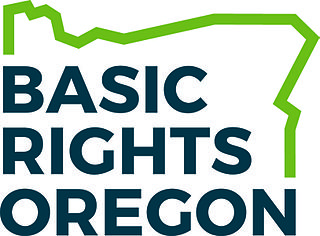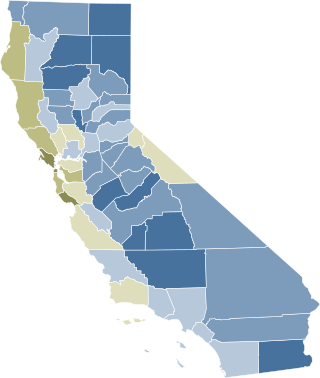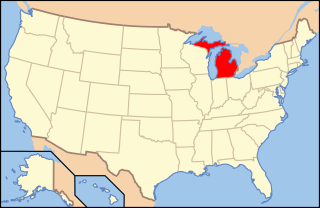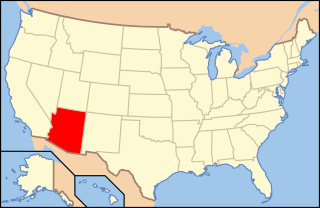| Election date | Locale | Goal | Outcome |
|---|
| 1974 | Boulder, Colorado | Placed on the ballot by the Boulder city council after passage of a gay rights ordinance met with public outcry | Passed with 83% of the vote. [9] [23] [24] |
| June 7, 1977 | Miami-Dade County, Florida | To repeal the county's gay rights ordinance | Passed with 69.3% of the vote. [9] [25] |
| April 25, 1978 | St. Paul, Minnesota | To repeal the city's gay rights ordinance | Passed with 63.1% of the vote. [9] [26] |
| May 9, 1978 | Wichita, Kansas | To repeal the city's gay rights ordinance | Passed with 80% of the vote. [9] [27] |
| May 23, 1978 | Eugene, Oregon | To repeal the city's gay rights ordinance | Passed with 64.3% of the vote. [9] [28] |
| November 7, 1978 | Seattle, Washington | To repeal the city's gay rights ordinance | Defeated with 62.9% of the vote. [9] [29] |
| June 3, 1980 | Santa Clara County, California | To repeal the county's gay rights ordinance | Passed with 70.2% of the vote. [9] [30] |
| San Jose, California | To repeal the city's gay rights ordinance | Passed with 75.2% of the vote. [9] [30] |
| 1982 | Austin, Texas | To repeal the city's gay rights ordinance in housing | Defeated with 63% of the vote. [9] |
| 1984 | Duluth, Minnesota | To repeal the city's gay rights ordinance | Passed with 76% of the vote. [9] [31] |
| 1985 | Houston, Texas | To repeal the city's gay rights ordinance | Passed with 82% of the vote. [9] |
| 1986 | Davis, California | To repeal the city's gay rights ordinance | Defeated with 58% of the vote. [9] |
| November 7, 1989 | Athens, Ohio | To repeal the city's gay rights ordinance | Passed with 53% of the vote. [9] [32] |
| Irvine, California | To repeal the city's gay rights ordinance | Passed with 53% of the vote. [9] [32] |
| Concord, California | To repeal the city's gay rights ordinance | Passed with 50.2% of the vote. [9] [32] |
| Tacoma, Washington | To repeal the city's gay rights ordinance | Passed with 51.2% of the vote. [9] [33] |
| 1990 | Wooster, Ohio | To repeal the city's housing law | Passed with 63% of the vote. [9] |
| May 21, 1991 | Denver, Colorado | To repeal the city's gay rights ordinance | Defeated with 55% of the vote. [9] [34] |
| November 5, 1991 | St. Paul, Minnesota | To repeal the city's gay rights ordinance | Defeated with 54% of the vote. [9] [35] |
| May 19, 1992 | Corvallis, Oregon | Would prohibit the city from recognizing homosexuality, passing anti-discrimination laws based on homosexuality, and from using city funds and properties to "promote" homosexuality. [36] | Failed with 63% voting against. [9] [37] |
| Springfield, Oregon | Would prohibit the city from recognizing homosexuality, passing anti-discrimination laws based on homosexuality, and from using city funds and properties to "promote" homosexuality. [38] | Passed with 55.4% of the vote. [9] [37] |
| 1993 | Portsmouth, New Hampshire | To repeal the city's gay rights law | Passed. [9] |
| November 2, 1993 | Portland, Maine | To repeal the city's gay rights law | Defeated with 57% of the vote. [9] [39] |
| Tampa, Florida | To repeal the city's gay rights ordinance | Passed with almost 58.5% of the vote. However, the Florida Supreme Court later ruled that 462 signatures from the initiative petition were invalid and voided the repeal. [9] [40] |
| Cincinnati, Ohio | Ballot Issue 3, to prevent the city from enacting any gay rights ordinances. | Passed with 67% of the vote. Despite being worded almost identically to Colorado's Amendment 2, the Sixth Circuit Court of Appeals upheld the measure as constitutional in 1997. [41] Cincinnati voters repealed Issue 3 in 2004. [9] [42] |
| Lewiston, Maine | To repeal a recently passed anti-discrimination ordinance | Passed with 68% of the vote. [9] [43] |
| May 18, 1993 | Cornelius, Oregon | Measure 34-5: “SUMMARY: Amends City Charter. Prohibits City from extending minority status based on homosexuality, sexual orientation or preference and from enforcing such laws. Prohibits City spending to promote or approve homosexuality. Does not deny City services based on lawful sexual practices. Does not forbid public library materials for adults. Does not nullify civil rights based on race, religion, color, sex, marital status, familial status, national origin, age or disability. Does not limit constitutional rights. Allows laws which prohibit employment discrimination based on non-work related reasons.” [44] | Passed. YES: 981 (61.74%) NO: 608 (38.26%) [45] |
| June 29, 1993 | Canby, Oregon | To repeal the city's gay rights ordinance | Passed. [46] |
| Junction City, Oregon | To repeal the city's gay rights ordinance | Passed by one vote. [19] [46] The measure was later invalidated by a court but a new initiative passed in March 1994. [47] |
| Douglas County, Oregon | To repeal the city's gay rights ordinance | Passed. [46] |
| Josephine County, Oregon | To repeal the city's gay rights ordinance | Passed. [46] |
| Klamath County, Oregon | To repeal the city's gay rights ordinance | Passed. [46] |
| Linn County, Oregon | To repeal the city's gay rights ordinance | Passed. [46] |
| September 21, 1993 | Creswell, Oregon | To repeal the city's gay rights ordinance | Passed. [48] |
| Estacada, Oregon | To repeal the city's gay rights ordinance | Passed. [48] |
| Grants Pass, Oregon | To repeal the city's gay rights ordinance | Passed. [21] |
| Gresham, Oregon | To repeal the city's gay rights ordinance | Passed. [21] |
| Lebanon, Oregon | To repeal the city's gay rights ordinance | Passed. [48] |
| Medford, Oregon | To repeal the city's gay rights ordinance | Passed. [48] |
| Molalla, Oregon | To repeal the city's gay rights ordinance | Passed. [48] |
| Sweet Home, Oregon | To repeal the city's gay rights ordinance | Passed. [48] |
| Jackson County, Oregon | To repeal the city's gay rights ordinance | Passed. [48] |
| November 9, 1993 | Keizer, Oregon | To repeal the city's gay rights ordinance | Passed with 55% of the vote. [20] |
| Oregon City, Oregon | To repeal the city's gay rights ordinance | Passed with 53% of the vote. [20] |
| 1994 | Springfield, Missouri | To repeal the city's gay rights ordinance | Passed. [47] |
| March 22, 1994 | Albany, Oregon | To repeal the city's gay rights ordinance | Passed. [47] |
| Junction City, Oregon | To repeal the city's gay rights ordinance | Passed. [47] |
| Turner, Oregon | To repeal the city's gay rights ordinance | Passed. [47] |
| Marion County, Oregon | To repeal the city's gay rights ordinance | Passed. [47] |
| May 17, 1994 | Cottage Grove, Oregon | To repeal the city's gay rights ordinance | Passed. [21] |
| Gresham, Oregon | To repeal the city's gay rights ordinance | Received a majority of the vote but not the 60% majority required for passage. [49] |
| Oakridge, Oregon | To repeal the city's gay rights ordinance | Passed. [21] |
| Roseburg, Oregon | To repeal the city's gay rights ordinance | Passed. [21] |
| Veneta, Oregon | To repeal the city's gay rights ordinance | Passed. [21] |
| November 1994 | Alachua County, Florida | 1) To overturn the existing gay rights law
2) To bar future ordinances | Passed with 57% of the vote.
Passed with 59% of the vote. [9] [50] |
| November 8, 1994 | Lake County, Oregon | To repeal the city's gay rights ordinance | Passed. [21] |
| January 10, 1995 | West Palm Beach, Florida | To repeal the city's gay rights ordinance | Defeated with 56% of the vote. [9] [51] |
| March 7, 1995 | Tampa, Florida | To repeal the city's gay rights ordinance | Five days before the election a judge threw out the referendum so the votes were not tallied. [9] [52] |
| 1996 | Lansing, Michigan | Two initiatives, both to repeal the city's gay rights ordinance | Passed with 52% of the vote.
Passed with 55% of the vote. [9] |
| 1998 | Fayetteville, Arkansas | To repeal the city's gay rights law | Passed with 60% of the vote. [9] |
| Fort Collins, Colorado | To repeal the city's gay rights law | Passed with 62% of the vote. [9] |
| 1999 | Falmouth, Maine | To repeal the city's gay rights law | Defeated with 59% of the vote. [9] |
| Spokane, Washington | To repeal the city's gay rights law | Defeated with 52% of the vote. [9] |
| 2000 | Ferndale, Michigan | To repeal the city's gay rights law | Passed. [9] |
| 2001 | Huntington Woods, Michigan | To repeal the city's gay rights law | Defeated. [9] |
| Kalamazoo, Michigan | To repeal the city's gay rights law | Defeated with 54% of the vote. [9] |
| Traverse City, Michigan | To repeal the city's gay rights law | Defeated with 58% of the vote. [9] |
| September 10, 2002 | Miami-Dade County, Florida | To repeal the county's gay rights ordinance | Defeated with 53% of the vote. [9] [53] |
| 2002 | Westbrook, Maine | To repeal the city's gay rights law | Defeated. [9] |
| Ypsilanti, Michigan | To repeal the city's gay rights law | Defeated with 63% of the vote. [9] |
| Tacoma, Washington | To repeal the city's gay rights law | Defeated. [9] |
| March 1, 2005 | Topeka, Kansas | To bar Topeka from recognizing sexual orientation as a protected class for ten years | Defeated with 52% of the vote. [9] [54] |
| March 24, 2009 | Gainesville, Florida | Charter Amendment One, to repeal the city's gay rights ordinance | Defeated with 58% of the vote. [9] [55] |
| November 8, 2011 | Traverse City, Michigan | To repeal the anti-discrimination ordinance enacted in 2010. | Defeated by 62.9% of the vote. [56] |
| November 6, 2012 | Salina, Kansas | To repeal the city's anti-discrimination ordinance in public employment or housing. | Passed by 54% of voters. [57] |
| Hutchinson, Kansas | To repeal the city's anti-discrimination ordinance in public employment or housing. | Passed by 58% of voters. [57] |
| May 20, 2014 | Pocatello, Idaho | To repeal the cities anti-discrimination ordinance for sexual orientation and gender expression | Defeated by a margin of 80 votes. [58] |
| August 7, 2014 | Chattanooga, Tennessee | To repeal Ordinance 12781, an ordinance prohibiting discrimination on the basis of sexual orientation and gender identity and establishing domestic partnership benefits for city employees. | Passed by a vote of 62.58% in favor of repeal and 37.42% against. [59] |
| December 9, 2014 | Fayetteville, Arkansas | To repeal Ordinance 5703 Chapter 119, an ordinance to protect and safeguard the right and opportunity of all persons to be free from discrimination based on real or perceived race, ethnicity, national origin, age, gender, gender identity, gender expression, familial status, marital status, socioeconomic background, religion, sexual orientation, disability and veteran status. | Passed by a vote of 51.66% in favor of repeal and 48.34% against. [60] |
| April 7, 2015 | Springfield, Missouri | To repeal the Ordinance 6141 [61] | Passed with 51.43% of the vote. [62] |
| September 8, 2015 | Fayetteville, Arkansas | To repeal the Ordinance 5781 | Defeated with 52.77% of the vote. [63] |
| November 3, 2015 | Houston, Texas | Proposition 1 | Defeated with 60.97% of the vote. [64] |
| April 3, 2018 | Anchorage, Alaska | Proposition 1 | Defeated by 52.64% of the vote. [65] |











